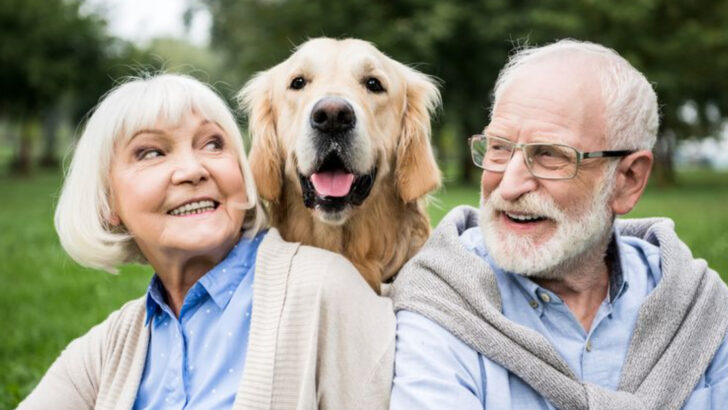Dogs are more than pets; they’re guardians of the heart. As we grow older, they step up to fill roles we never expected.
These loyal companions don’t just provide comfort—they become a shoulder to lean on, a watchful eye, and a soft paw when we need it most. Whether they’re gently nudging us out of bed or guiding us through the house, dogs seem to know exactly what we need.
But it’s not just physical care. The emotional support they give is unmatched. They intuitively sense when their humans are feeling low, offering warmth and companionship without hesitation.
The bond between an aging person and their dog is powerful. It’s a reminder that love, loyalty, and care aren’t bound by age. When our legs grow tired, their paws carry us forward.
Emotional Support
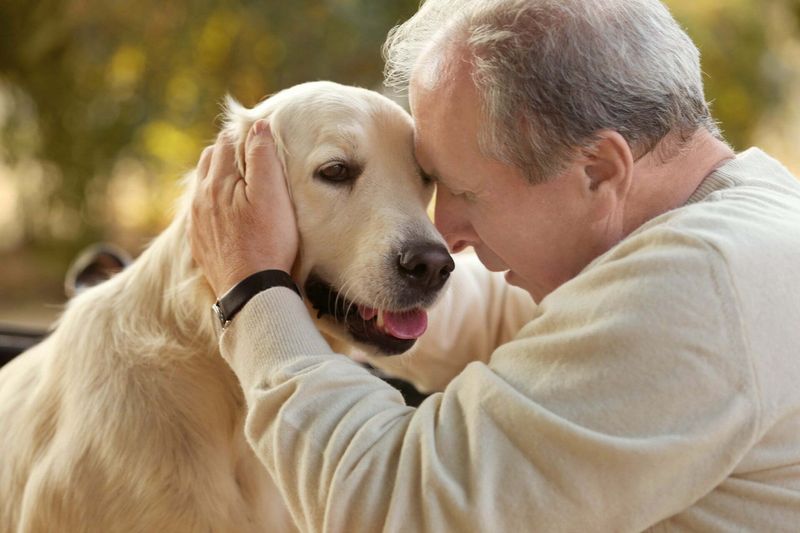
Dogs have an innate ability to sense when their human is feeling down or stressed. They provide a comforting presence that can help ease anxiety and depression in seniors. Dogs, with their warm eyes and gentle nature, can make an elderly person feel less alone.
Their constant companionship offers both emotional support and a sense of purpose. Just having a dog around can lift spirits and provide joy, helping seniors cope with difficult emotions. Dogs often seem to know when their human needs comfort, offering a paw or a nuzzle at just the right moment.
Encouraging Physical Activity
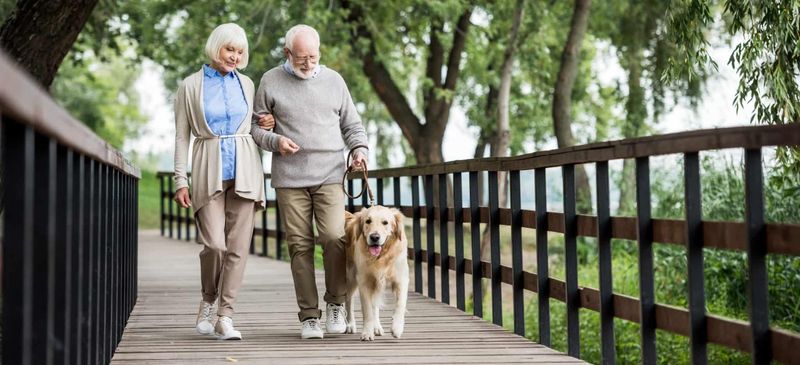
Walking a dog requires regular physical activity, which is beneficial for seniors. This daily routine encourages exercise, helping to improve cardiovascular health and maintain mobility. Dogs need walks, and their enthusiasm can be contagious, motivating seniors to stay active.
Even a short walk can make a big difference in an elderly person’s physical well-being. Dogs also provide an opportunity to explore new places and enjoy nature. The simple act of walking a dog can bring about a sense of achievement and keep seniors engaged with the world around them.
Providing Routine and Structure
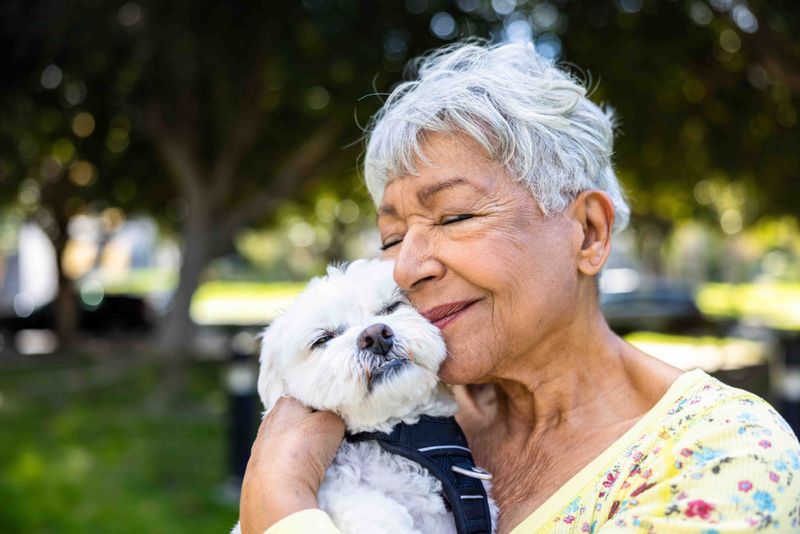
Dogs thrive on routine, and this need for structure can be beneficial for seniors. Caring for a dog gives elderly individuals a daily schedule and responsibilities, which can be incredibly fulfilling. Feeding, walking, and grooming a dog provide a sense of purpose and help maintain daily routines.
These tasks help seniors stay organized and can make their day more predictable and manageable. Owning a dog can also serve as a reminder for seniors to take care of their own health needs, such as remembering to eat regular meals or take medication.
Enhancing Social Interactions
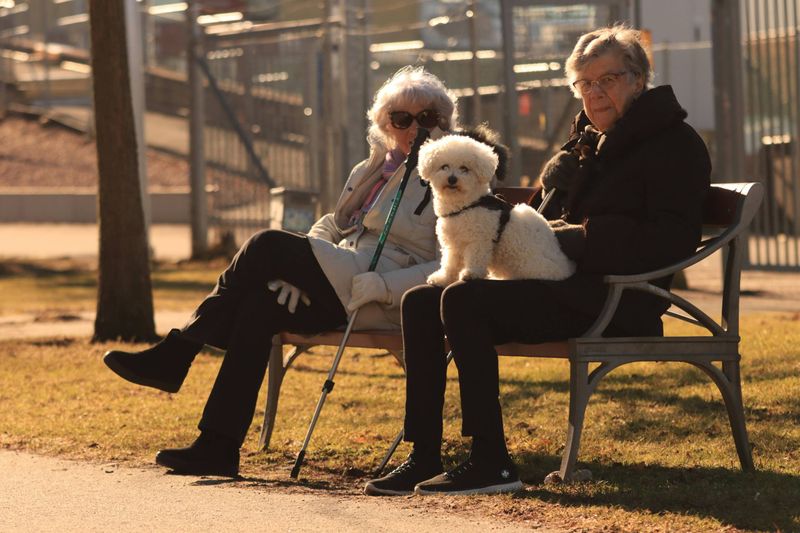
Dogs are great conversation starters and can help seniors build social connections. Walking a dog in the neighborhood or visiting a dog park can lead to interactions with other dog owners. These social encounters can reduce feelings of isolation and loneliness in elderly individuals.
Dogs encourage their humans to get out and meet new people, fostering friendships and community bonds. Having a pet also provides a common interest that can initiate conversations and build relationships. This social engagement is crucial for mental health and overall well-being.
Alerting to Medical Needs
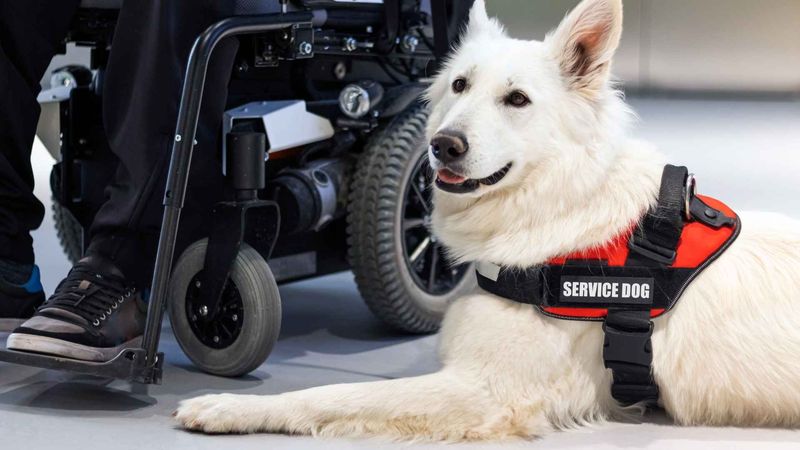
Some dogs can be trained to recognize signs of medical distress in their humans, such as low blood sugar or an impending seizure. These service dogs alert their owners, allowing them to take necessary action or seek help.
Even untrained dogs can sometimes sense when something is amiss and react by seeking attention or acting out of character. This instinctual response can be lifesaving for seniors living alone. Dogs offer an extra layer of security, providing peace of mind for both the elderly and their families.
Offering Physical Assistance
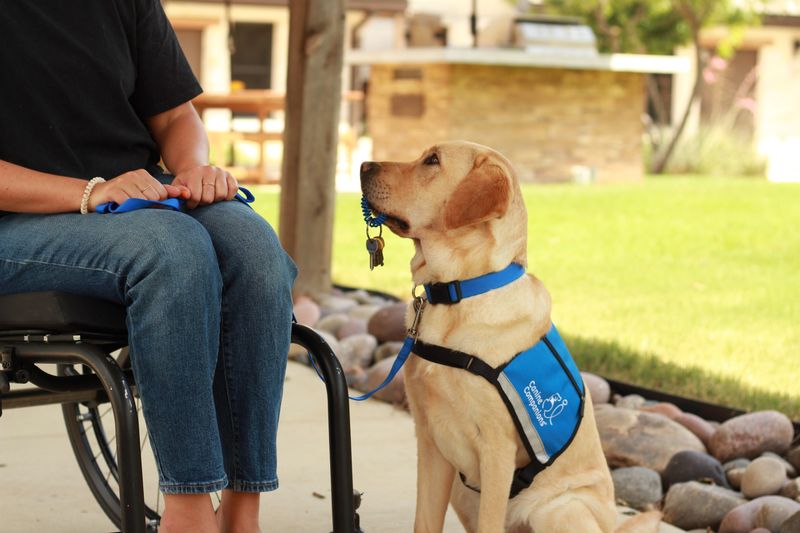
Service dogs are invaluable for seniors with mobility challenges. These specially trained dogs can assist with tasks such as fetching items, opening doors, or providing balance support. This independence allows seniors to perform daily activities they might otherwise struggle with.
Having a dog that can assist with physical tasks can greatly enhance an elderly person’s quality of life. Even untrained dogs often learn to be helpful in small ways, like picking up dropped items or providing a steady presence for balance. These acts of assistance foster independence and confidence.
Reducing Stress and Anxiety
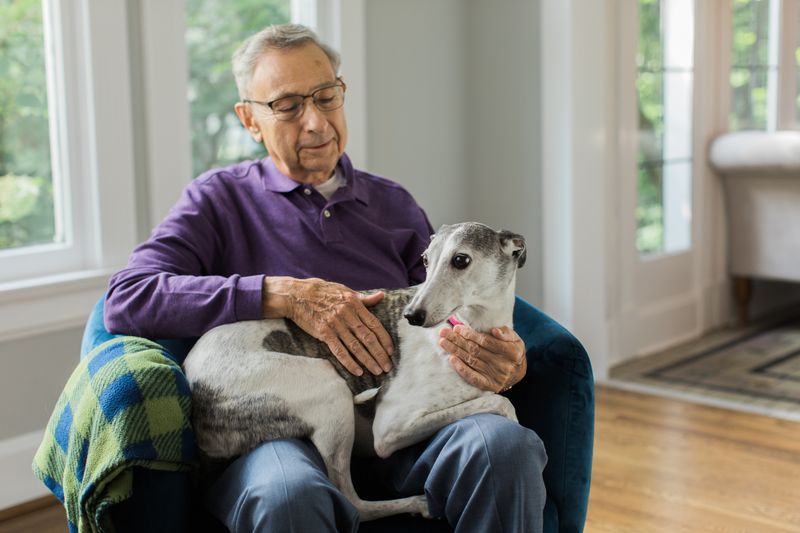
Interacting with dogs has been shown to reduce levels of stress and anxiety in humans. Petting a dog can lower heart rate and blood pressure, creating a calming effect. For seniors, having a dog around can provide significant emotional relief.
The non-judgmental companionship offered by dogs allows elderly individuals to express themselves freely without fear of criticism. Dogs also provide a sense of normalcy and security, helping to alleviate worries and fears. The act of caring for a dog can be meditative, offering a reprieve from stress and anxiety.
Stimulating Mental Engagement
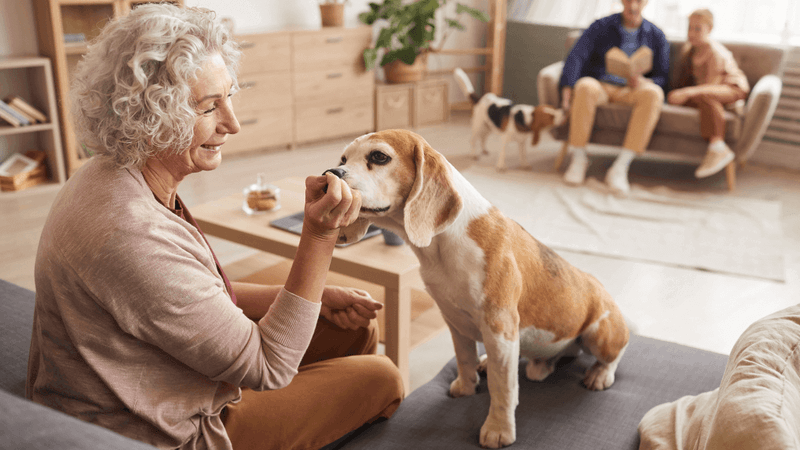
Dogs offer mental stimulation through play and interaction. Engaging with a dog encourages seniors to think creatively and stay mentally active. Whether it’s teaching a dog a new trick or playing a game of fetch, these activities stimulate the brain.
For elderly individuals, this mental engagement can keep cognitive functions sharp and delay the onset of age-related decline. Dogs provide both challenge and reward, making the activities enjoyable and enriching. The shared joy of learning and playing together can enhance the mental well-being of seniors.
Providing Security
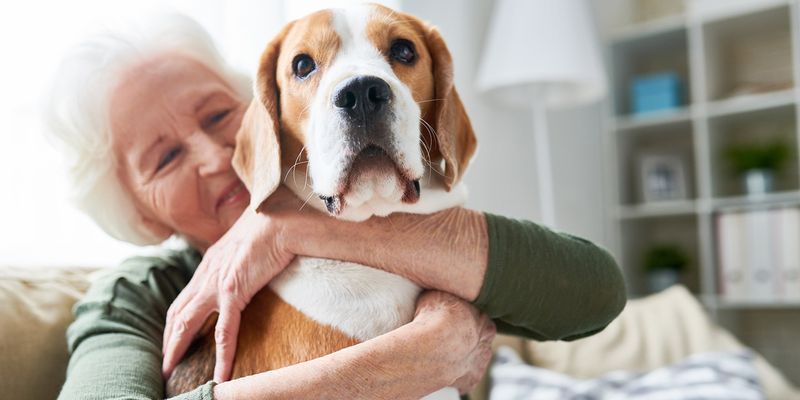
Dogs offer a sense of security, both emotionally and physically. Their presence can deter potential intruders and make seniors feel safer in their homes. For elderly individuals living alone, this added security is invaluable.
Dogs are known to alert their owners to any unusual activity or noises, providing early warning of potential dangers. This watchful presence can ease fears and allow seniors to relax, knowing they have a loyal protector by their side. The companionship of a dog offers comfort and peace of mind, enhancing overall safety.
Supporting Grief Recovery
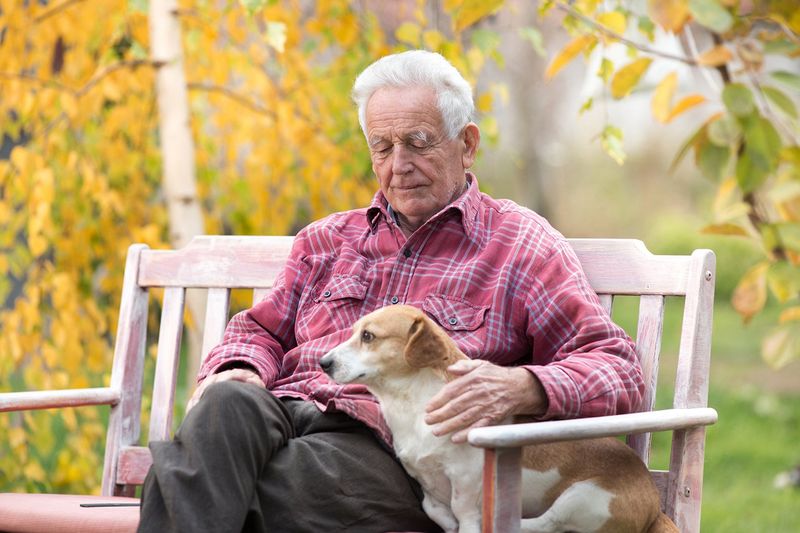
The loss of loved ones can be particularly hard for seniors, but dogs can offer solace during such times. Their ability to provide unconditional love helps ease the pain of grief and loss. Dogs remain a constant presence, offering comfort and companionship when it’s needed most.
They can sense when their human is sad and provide a shoulder to lean on—or a paw to hold. This emotional support aids in the grieving process, helping seniors to navigate through their feelings. The bond shared with a dog can be a source of healing during difficult periods.
Offering Unconditional Love
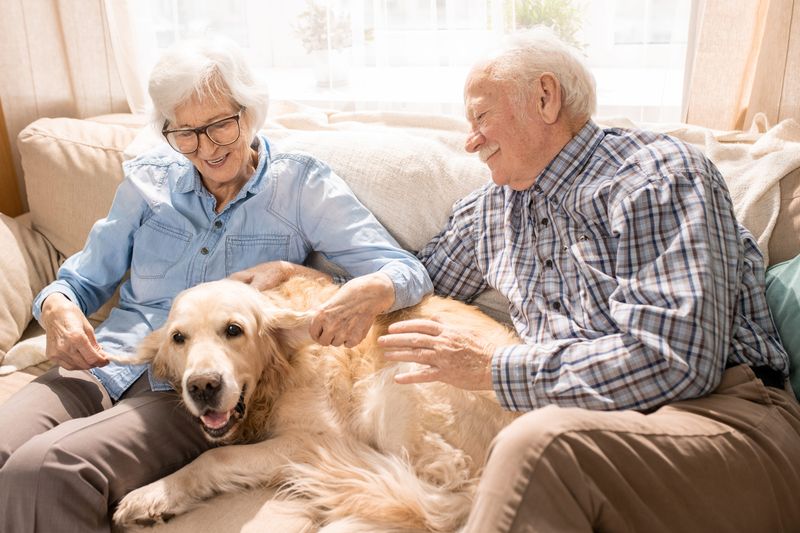
Dogs are known for their unconditional love and loyalty, traits that are deeply comforting to seniors. This unwavering devotion helps combat feelings of loneliness and isolation, providing emotional sustenance.
For elderly individuals, this companionship offers a daily reminder that they are loved and needed. Dogs greet their humans with excitement and affection, creating a warm and loving atmosphere at home. This bond enhances the quality of life for seniors, providing joy and emotional fulfillment. Loving a dog and being loved in return is a simple yet profound way dogs care for their elderly humans.
Enhancing Mood
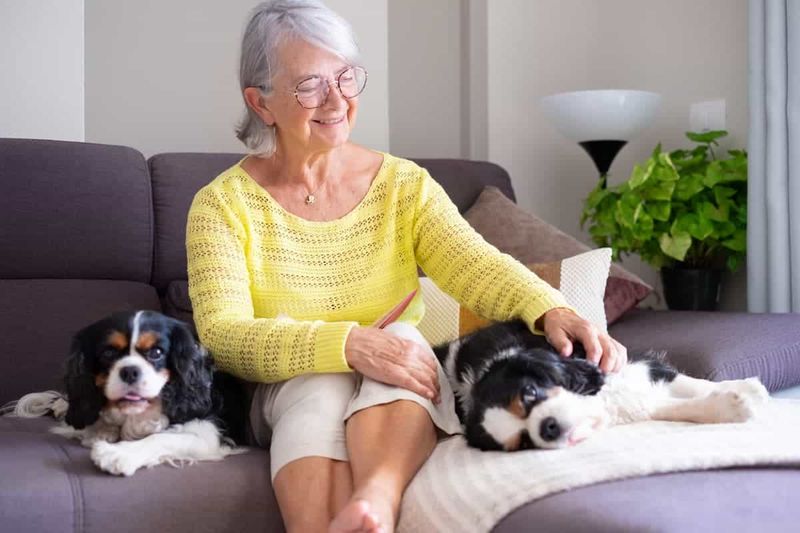
The playful antics and cheerful presence of dogs can improve mood and emotional well-being. Laughter is a natural response to a dog’s playful behavior, which has a positive impact on mental health. Dogs bring joy and amusement, lifting spirits and brightening the day.
For seniors, having a dog around means having a constant source of lighthearted entertainment. This joy and positivity can help counteract feelings of sadness or apathy. The companionship of a dog encourages laughter and happiness, contributing to a more vibrant and fulfilling life.
Facilitating Reminiscence
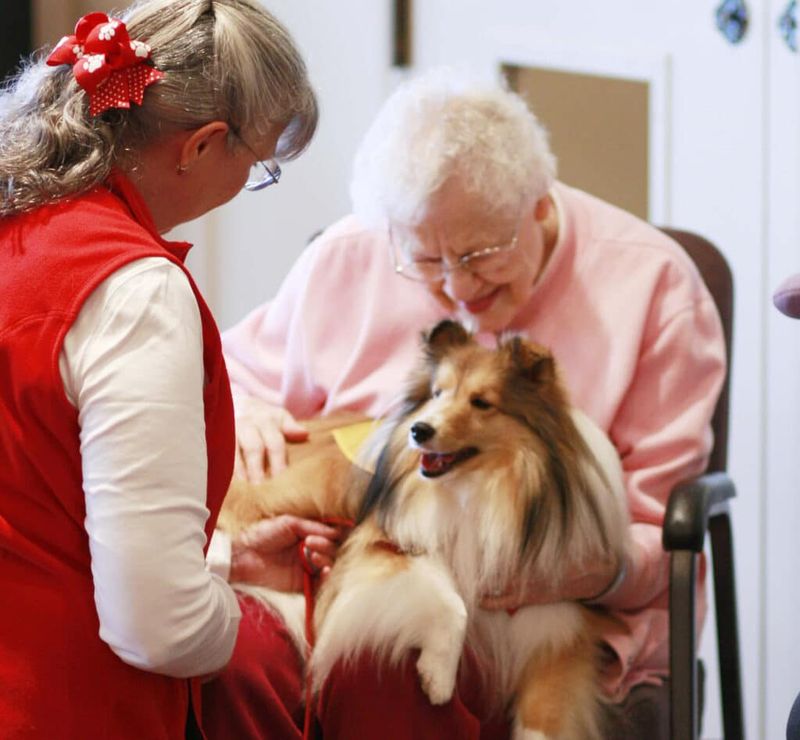
Dogs can trigger memories and facilitate reminiscence, a valuable activity for seniors. The bond with a dog often evokes memories of past pets and experiences, encouraging storytelling and reflection. This can be particularly beneficial for elderly individuals, promoting cognitive engagement.
As seniors share stories about their pets, they relive happy moments, which can boost mood and mental health. Dogs, with their non-judgmental presence, are perfect listeners, making the reminiscence more personal and meaningful. This activity reinforces identity and connections to the past, providing comfort and continuity.
Teaching Patience
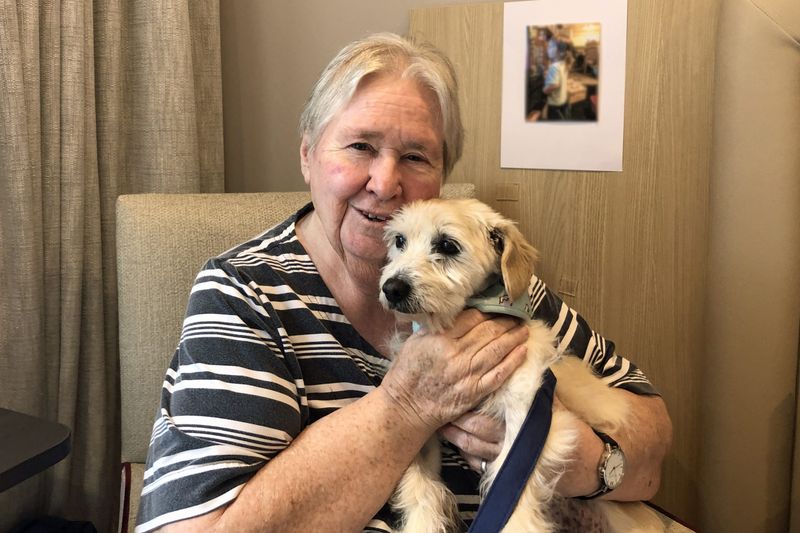
Caring for a dog requires patience, a skill that can be practiced and honed by seniors. Training a dog involves consistent effort and understanding, which can be a rewarding challenge. For elderly individuals, teaching a dog new tricks or commands fosters patience and perseverance.
The process of bonding and learning together creates a fulfilling and meaningful experience. As seniors observe their dog’s progress, they experience a sense of accomplishment and joy. This patience-building activity also enhances the bond between human and dog, creating a strong and loving relationship.
Boosting Confidence
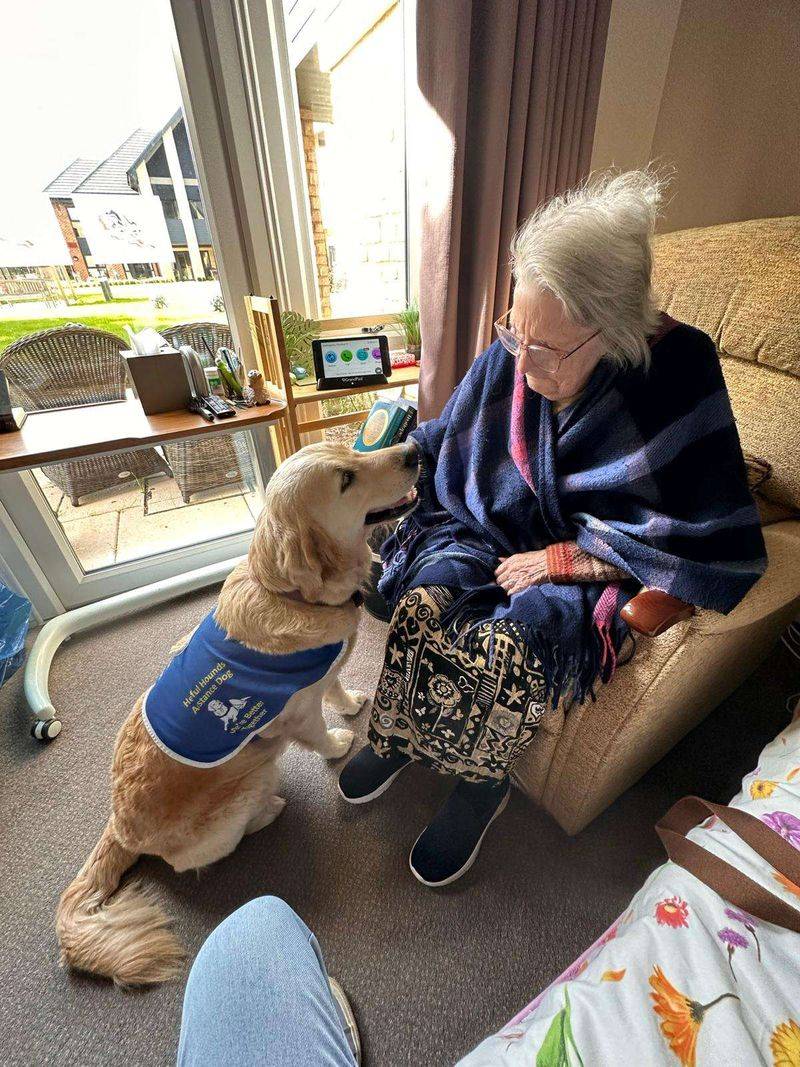
Dogs can help boost confidence in seniors by providing them with responsibilities and achievements. Successfully caring for a dog, training them, and keeping them well-groomed gives elderly individuals a sense of pride and self-worth.
For seniors, these accomplishments translate into increased confidence in other areas of life. Walking a well-behaved dog in the neighborhood can be a source of pride, fostering social interaction and community engagement. The companionship of a dog also offers emotional support, which can further enhance self-esteem and assurance.
Providing Daily Joy
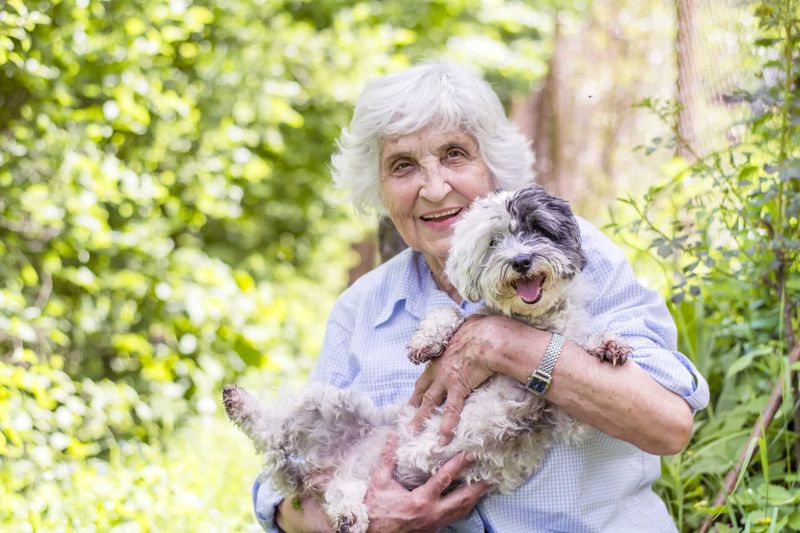
Dogs bring joy to everyday life, filling homes with laughter and happiness. Their playful antics and loving nature provide endless entertainment and affection. For seniors, this daily joy can be a source of emotional well-being and happiness.
The presence of a dog creates a lively atmosphere, breaking the monotony of routine. This joy and amusement help alleviate boredom and loneliness, enriching the lives of elderly individuals. The companionship of a dog ensures that each day is filled with smiles and warmth, enhancing the quality of life and overall happiness.
Aiding in Routine Tasks
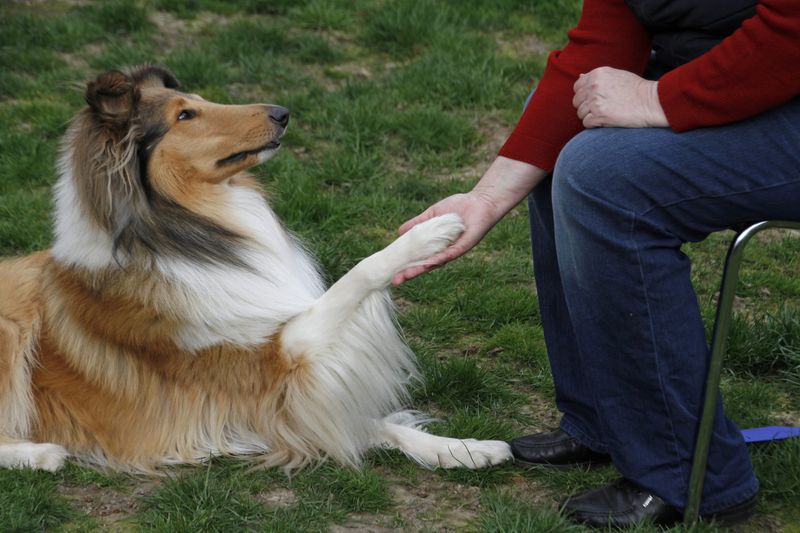
Service dogs are trained to assist with routine tasks, offering invaluable help to seniors. These dogs can fetch items, open doors, or remind their owners of daily activities. For elderly individuals, this assistance can make a significant difference in daily life.
Even untrained dogs often learn to be helpful, performing small tasks that aid their humans. This assistance not only makes daily routines easier but also fosters independence. The support of a dog provides comfort and confidence, allowing seniors to navigate their day with ease and efficiency.
Encouraging Outdoor Time

Dogs encourage their humans to spend more time outdoors, enjoying fresh air and nature. Walking or playing outside with a dog provides exercise and exposure to sunlight, benefiting seniors’ physical and mental health.
For elderly individuals, spending time outdoors can improve mood, increase energy levels, and promote relaxation. Dogs provide a reason to explore parks, trails, and neighborhoods, keeping seniors connected to the world around them. This outdoor interaction enhances overall well-being, offering both physical benefits and a sense of adventure.
Promoting Happiness
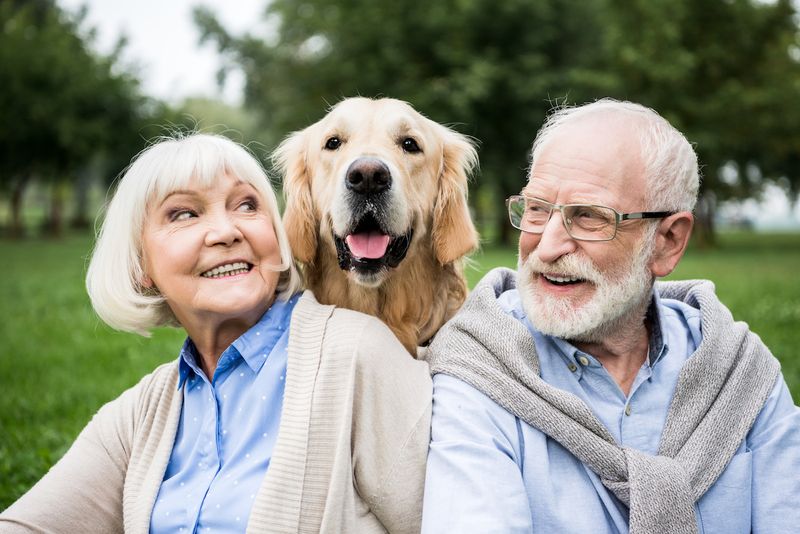
The cheerful and loving nature of dogs promotes happiness in their human companions. For seniors, having a dog brings positive emotions and a sense of fulfillment. The companionship of a dog offers love, laughter, and joy, significantly enhancing quality of life.
Dogs are intuitive and empathetic, responding to their human’s emotions with affection and playfulness. This bond creates a nurturing environment, where happiness thrives. For elderly individuals, the joy of having a dog enriches their daily lives, providing a constant source of positivity and emotional support.
Encouraging Mindfulness
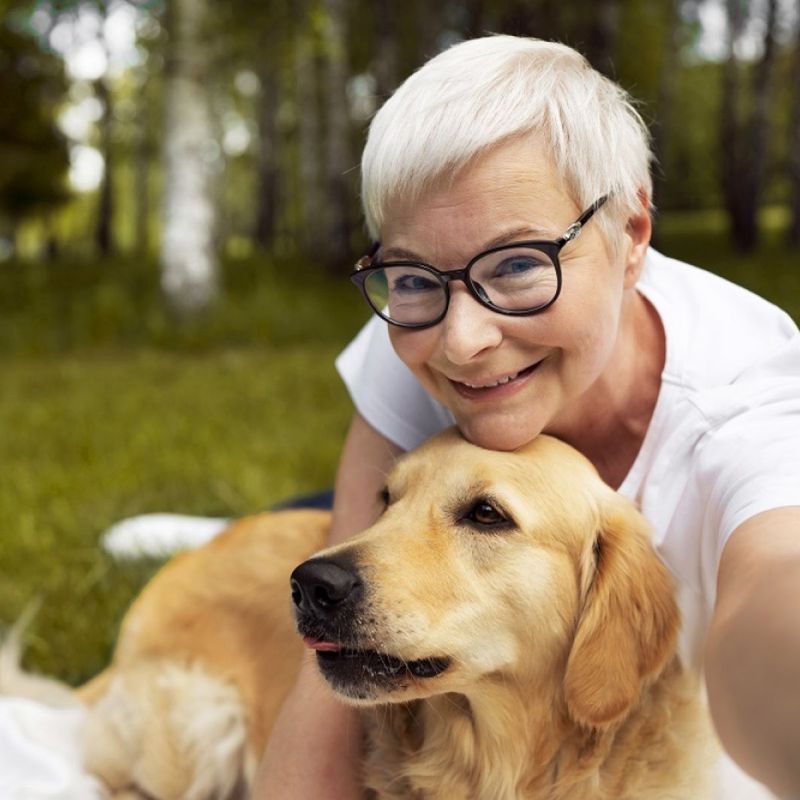
Dogs encourage mindfulness and being present in the moment, a mindset that can be particularly beneficial for seniors. Observing a dog’s simple joy in daily activities, such as sniffing around the garden or playing with a toy, can inspire mindfulness.
For elderly individuals, this presence promotes relaxation and emotional well-being. Dogs remind their humans to appreciate the small joys in life and to focus on the present. This mindfulness can lead to reduced stress and increased appreciation of each day, enhancing mental and emotional health.

